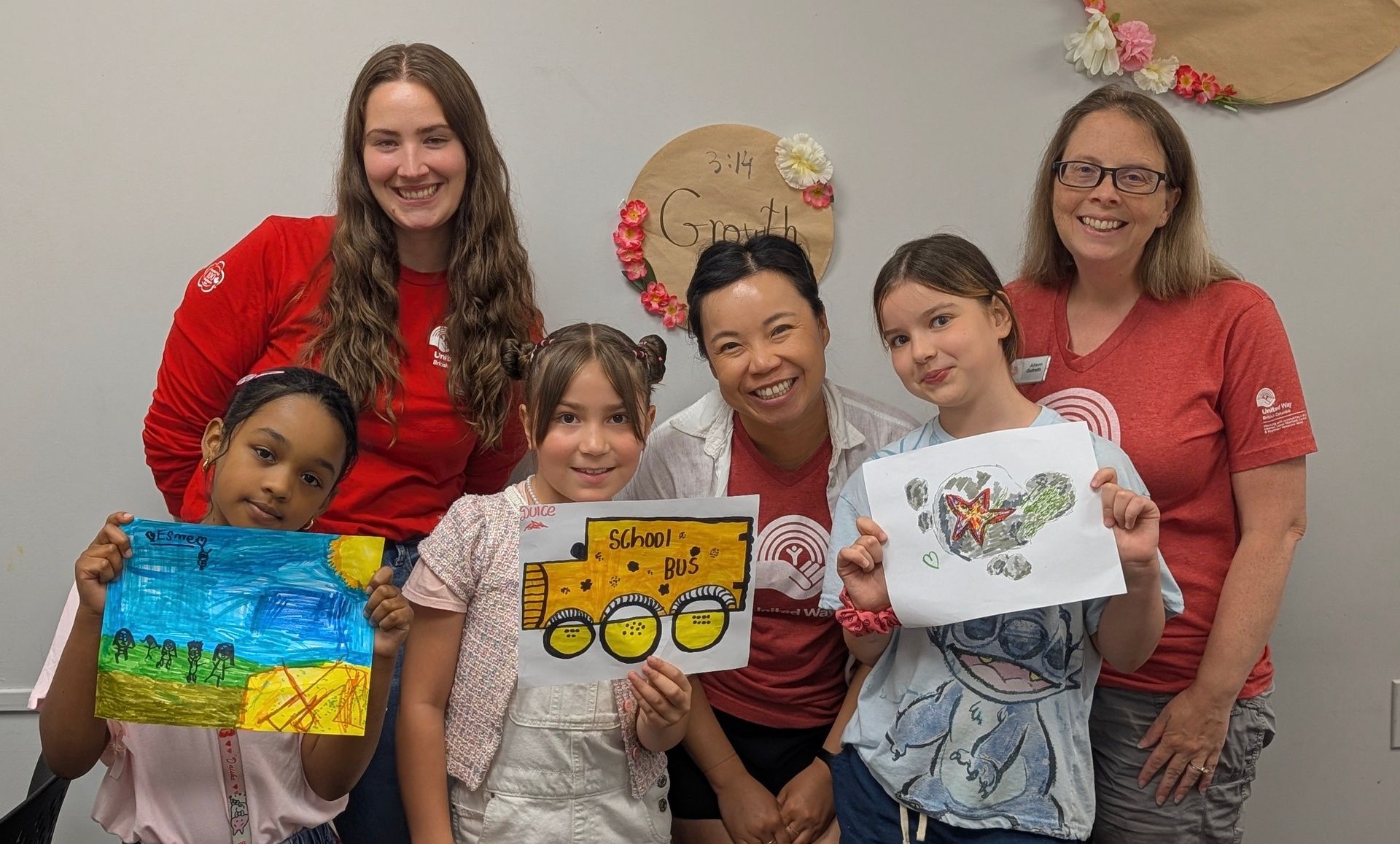
Children and educators at the School’s Out program in Abbotsford. Photo: United Way BC
This story first appeared in the ______ edition of the Fraser Valley Current newsletter. Subscribe for free to get Fraser Valley news in your email every weekday morning.
BC nonprofit, United Way, is expanding its after-school program, School’s Out, to two new sites in Mission and one at Chawathil First Nation near Hope. The program aims to support children who are food insecure and have limited access to after-school programs during critical hours once the school day ends. Children aged 6-12 will be able to access the program starting this fall.
“One of the things that we know is that investing in kids in the middle years is really important, because this is the time in your life when they’re learning not just who they are, but who they can be,” said Trisha Dulku, strategic initiatives manager at United Way British Columbia.
Dulku told The Current that the program aims to support children’s social and emotional development, helping them foster positive pro-social relationships and build the skills necessary for emotional regulation. She gave the example of an activity involving a “worry box” that aims to teach younger children to express and process their emotions.
“Whenever they’re feeling those complicated feelings where they’re not quite sure the name to put to it, they can write it down and then put it into a box,” Dulku said. “Then through a conversation circle, they have a conversation with their leaders and peers about what they’re feeling, and everyone can share an example of a time when they felt that way, or how they’ve used different coping strategies to deal with it.”
Kids can participate in activities such as arts and crafts, communication workshops, and other activities designed to support their emotional growth.
“The world is a scary place with a lot of climate emergencies that are happening, and so making sure that our kids are able to build those soft skills that they need to cope in a healthy manner is really key, and that’s one of the things we focus on in school,” Dulku said.
United Way currently runs the program at schools in Abbotsford, where the program focuses on children who are new to Canada. The Abbotsford sites offer a range of activities, especially arts and crafts activities and language support for children in a welcoming environment.
“One of the kids just this past summer told me a story about how, in their summer camp in Abbotsford, they were very excited to do a nature walk because they were able to see a raccoon,” Dulku said. “When they got back to the classroom space, and everyone was doing their reflection journals, this child did not just write an entry about the raccoon that they saw in the forest and how it was their first Canadian raccoon, but also drew a picture of the raccoon as well.”
Typically, the program runs for one hour and 45 minutes at least twice a week. The new program opening in Hope will serve children from the Chawathil First Nation, and this program will run four days a week. The two new sites in Mission will run twice a week. The program costs between $50,000 and $70,000 at each site to run for the 10-month school year. United Way relies on donations to cover expenses, and it is possible to donate directly on the nonprofit’s website.
There are currently 108 sites throughout BC serving around 6,000 children. United Way works with many Indigenous communities and organizations, such as the Fraser Valley Aboriginal Society. Almost 17% of children in the province are living in poverty, and many are food insecure. Critical counsellors also provide the children with mental health support.
“One in six children in BC lives in poverty. We know that that is six times greater, even 10 times greater, in many of our more rural and remote communities in BC,” Dulku said. “The program isn’t just a critical lifeline for developmental support for kids through a lot of these activities and learning experiences that they get, it’s also a critical lifeline in terms of the food support that they get, that they can then also extend and bring back to support their families.”
For Dulku, seeing the children interacting with their peers and educators and learning new skills is a rewarding experience.
“It’s always exciting for me to see the kids in action at these program sites, and to see the smiles on their faces, the confidence that they have because they’ve been able to take part in the program,” Dulku said. “With the School’s Out programs, it’s really about making sure that kids are thriving, not just today, but also for a brighter tomorrow.”
